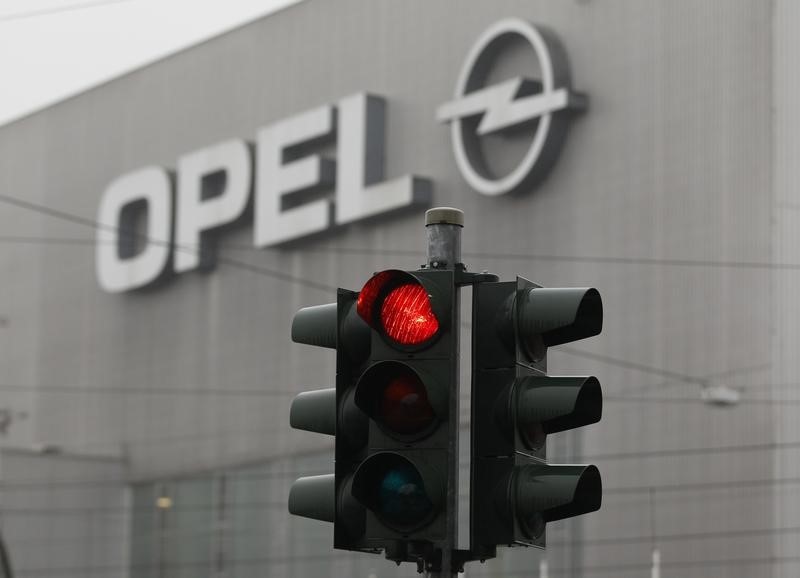By Gleb Stolyarov and Maria Kiselyova
MOSCOW (Reuters) - General Motors Co (N:GM) will shut its Russian factory and wind down its Opel brand in the country, taking a $600 million charge as it restructures its business to cope with a deepening downturn, the U.S. carmaker said on Wednesday.
After several years of growth in excess of 10 percent, car sales in Russia shrank in 2014 as the economy weakened because of Western sanctions over the Ukraine crisis and a slide in oil prices.
The rouble also tumbled last year, making consumers think twice about large purchases and manufacturers find ways to cut costs.
The U.S. carmaker said it would stop production at its St. Petersburg plant which makes the Chevrolet Cruze, Opel Astra and Chevrolet Trailblazer models by the middle of 2015. The closure of the plant will mean the loss of 1,000 jobs.
It will wind down the Opel brand by December and stop assembling mass-market Chevrolet cars at GAZ (MM:GAZA), a Russian vehicle factory, to concentrate on premium car sales.
"This decision avoids significant investment into a market that has very challenging long-term prospects," GM President Dan Ammann said in a statement.
Russia's Economy Ministry said late on Wednesday that no other foreign car company having an assembly line in Russia has said it would leave the market, RIA news agency reported.
"The Ministry of Economic Development of Russia cannot agree with the assessment of the market by one individual company," RIA cited the ministry's spokeswoman as saying.
GM said it would take around $600 million in special charges related to the reorganization of the Russian business, primarily in the first quarter of 2015.
Russia accounted for 1.9 percent of GM's global sales in 2014, down from 2.6 percent in 2013.
RUSSIAN MARKET SHRINKS
The Russian car market is forecast to shrink by up to 35 percent in 2015 according to PricewaterhouseCoopers.. The Russian Economy Ministry said it expects the domestic car market to return to growth in 2016.
"The (growth) results can be undoubtedly achieved," the ministry said, adding that the government's so-called anti-crisis program aimed at supporting domestic companies as well as other forms of state support will help.
But analysts say Russia is in for tough times.
"At least 70 percent of cars currently sold in Russia are sold at a loss. Auto groups only stay in this market to protect their share in anticipation of growth," said Oleg Datskiv, general director of online automobile portal Auto-dealer.ru.
GM said it would focus on the premium segment in Russia, which has held up better than the mass market, with Cadillac and some U.S.-built Chevrolet cars.
Opel sold 912 vehicles in Russia in February, an 86 percent plunge on year-ago levels, said a spokesman at Opel's base in the German town of Ruesselsheim.
Opel has raised prices several times to cope with the weak rouble, which fell more than 40 percent against the dollar in 2014, causing volumes to plunge and losses-per-vehicle to rise, the spokesman said.
Compared to some other foreign brands, Opel is hurt by a low level of integration into the local market. It imports more than half of all parts needed to assemble cars there.
By contrast, around 75 percent of car parts for Renault-Nissan (PA:RENA) (T:7201) vehicles sold in Russia come from local suppliers. This rate stands at about 60 percent for Germany's Volkswagen (DE:VOWG_p).
